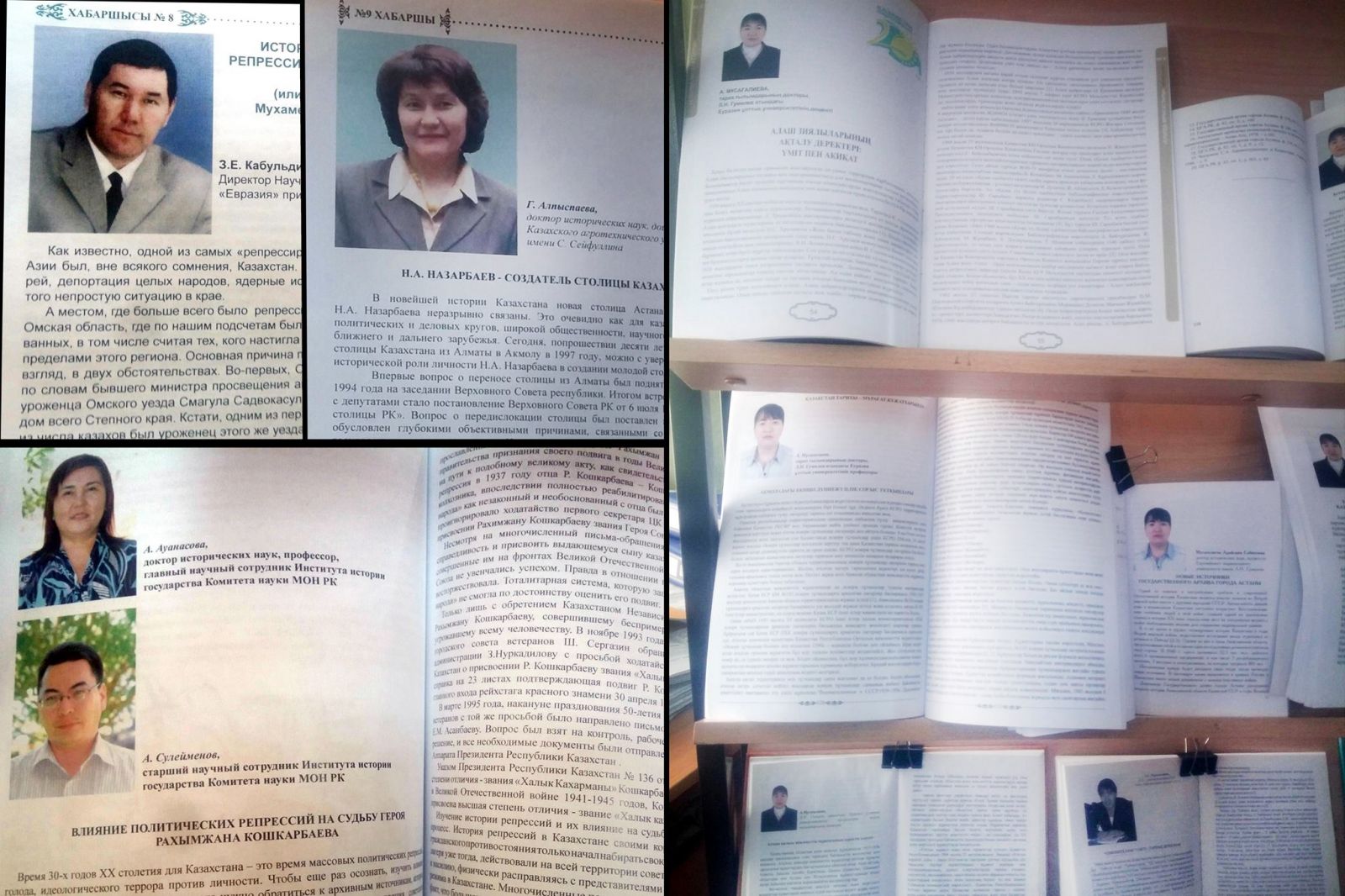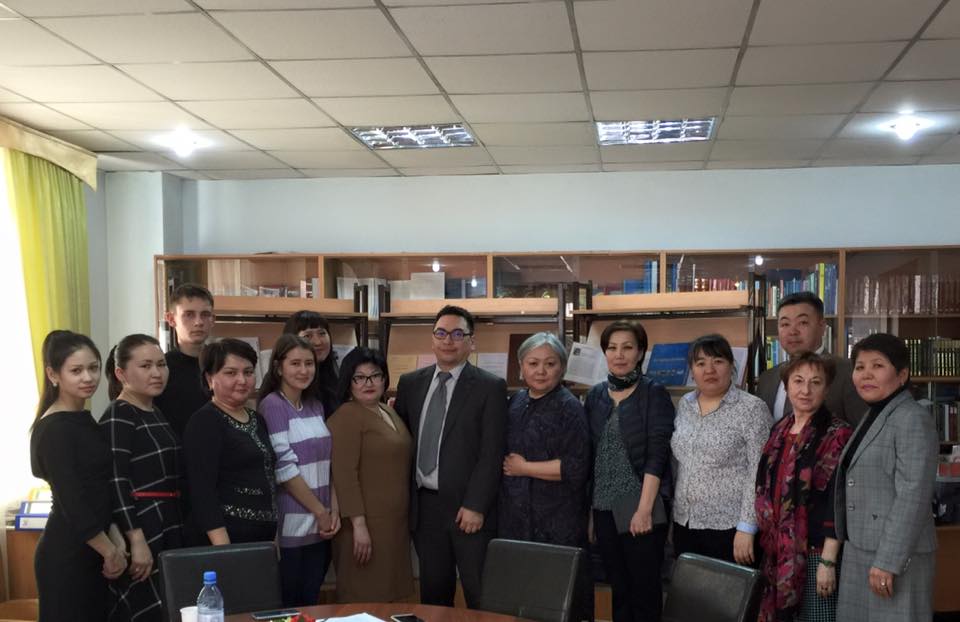Modern life has firmly entrenched the whole society into social networks and the virtual world. And the work of archives should also be more active in online mode. These issues, as well as issues of digitalization of documents, activation of interest in the history of the region, cooperation of archives with educational institutions were discussed at a round table held on April 6 in the State Archives of Astana with the participation of researchers, scholars, historians, local historians, masters, history teachers of the city schools.
As the organizers noted, the purpose of the meeting is to popularize the documents of the National Archival Fund of the Republic of Kazakhstan, preserve and replenish funds with archival scientific works. It can not be said that the reading room of the State Archives of Astana is a popular place for modern youth. But every year the number of visitors to the archive grows. As moderator of the meeting Elena Kulakova noted, there is a slow but steady growth of visitors:
2006 - 26 people, 2007 - 29 people, 2008 - 51 people, 2009 - 57 people, 2010 - 65 people, 2011 - 67 people, 2012 - 70 people, 2013 - 76 people, 2014 - 78 people, 2015 - 86 people, 2016 - 87 people.

During this period, 652 users visited the archive reading room. Among them there are 52 Doctors of Sciences, 61 Candidates of Science, 105 Master students. Research works are conducted by scientists, historians, local historians, undergraduates, students of schools. Here they are provided with archival materials, including very rare, valuable documents from a historical point of view.
"There are enough documents - there are not enough researchers. I have been cooperating with the archive of Astana since 2009. There are many documents in this archive, many of which have not yet been investigated. I took many important materials here during the preparation of my doctoral dissertation. In the archives there are unique documents from Podolsk, which are not in other archives of the country, even in Russia there. I can say with full confidence: there are still a lot of unexamined documents that can be useful for historians," said the professor of the department "History of Kazakhstan" ENU named after L.N. Gumilyov Araylym Musagaliyeva.
The funds of the archive chronologically cover the Soviet period, beginning in 1917. Although there are documents of the 430-th fund, in which are stored more ancient documents obtained from other archives.
In the Soviet period there were no urban studies, said the professor of the philosophy department of the ENU named after L.N. Gumilyov Kulshat Medeuova. With the transfer of the capital to Astana, researchers began urban studies, a direction that unites a wide range of sciences, such as geography, sociology, social psychology, anthropology, there is urban planning, more specifically, specific urban planning practices, there is urban design, urban sociology and much more. Unfortunately, the specialists could not find the necessary data. The subject of the study could be urban conglomerates, for example, Technopark. What is its history? What significance did it play in the structure of the city? After all, it is not only an industrial, but a military-defense facility. Now it again changed its appointment, even people live there. "Modern urban life allows us to reveal rigid fences," Kulshat Medeuova summarized.
Head of the Department “History of Kazakhstan” KazATU named after S. Seifullin, Ph.D. Omirbai Bekmaganbetov has a special interest in the city archives. "At our department, 4 scientific projects concern the history of the city," he said. The scientist wished the archive the successful work.
The administration of the archive noted that in 2017 they plan to organize an exhibition of documents, a round table and other events dedicated to the 100th anniversary of the Alash party.
During the "round table" the pupil of the 10th form of the school-lyceum No. 35 in Astana, Igor Ivanov, said that he is also a frequent visitor of the archive. He is working on a scientific project on the history of the formation of the 29th Akmola Rifle Division in this region. Materials from the funds became a great help in his research. "Working in the archive is always exciting, interesting, as if you are transferring to another historical time," he said.

The staff of the archive noted that a competition of scientific works was announced specially for high school students. But there are still few works on the competition. At the end of the meeting, the participants expressed their views and suggestions for further research activities.
Translated by Raushan MAKHMETZHANOVA

